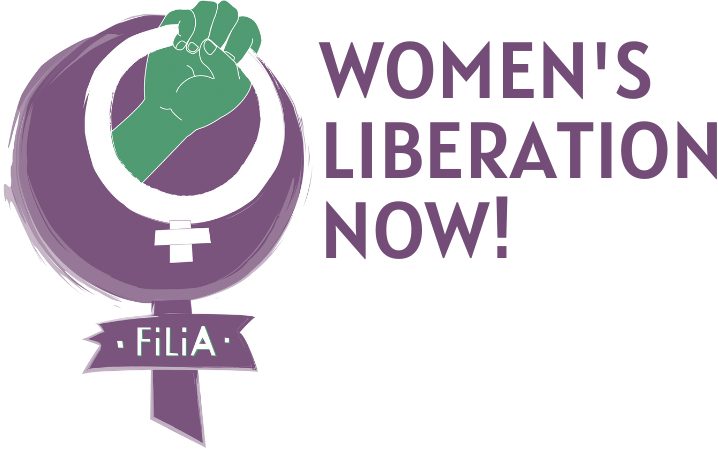Articles intégraux en PDF
The Deep Green Resistance News Service is an educational wing of the DGR movement. We cover a wide range of contemporary issues from a biocentric perspective, with a focus on ecology, feminism, indigenous issues, strategy, and civilization. We publish news, opinion, interviews, analysis, art, poetry, first-hand stories, and multimedia.
▸ les 2719 dernières parutions
Indigenous and Afro-Descendant Leaders Demand Climate and Racial Justice
(42 mots)
More than 50 indigenous and Afro-descendant representatives of the Black and Indigenous Liberation Movement (BILM) call on the States of the Americas to address climate change from a differentiated, non-discriminatory justice perspective that addresses historical reparations for the impacts of colonialism.
Approval of Deep Sea Mining Test Despite Concerns
Editor’s Note: Deep sea mining is being pursued on the pretext of a transition towards a “cleaner” source of energy. This transition is being hailed as “the solution” to all environmental problems by the majority of the environmental movement. The irony of “the solution” to environmental problems being destruction of natural communities seems to be lost on a lot of people. The International Seabed Authority has been criticized for a lack of transparency and corporate capture by the companies it is supposed to regulate. Given that the organization is expected to be f unded from mining royalties, it may not come as a surprise that it has prioritized the interests of corporations above the preservation of the deep sea. Despite numerous concerns raised about Nauru Ocean Resources Inc. (NORI)’s environmental impact statement, the ISA gave permission to NORI to begin exploratory mining. NORI’s vessel, The Hidden Gem, is currently extracting polymetallic nodules from the seafloor in the Clarion Clipperton Zone. This exploratory mining will cause tremendous harm itself, but it is also a big step towards opening the gates to large-scale commercial exploitation of the deep sea. To help stop this, get organized, become a Deep Sea Defender. (220 mots)
The Cult of Civilization
(63 mots)
Editor’s Note: The following article compares civilization to a cult, by questioning some of the basic assumptions of civilization. Civilization, particularly industrial civilization, is fundamentally unsustainable. The solutions proposed to make it more sustainable, i.e. technological advancements, miss the root cause of the problem, i.e. overconsumption by a species to the detriment of all life forms on Earth.
Pipeline Sabotage in UK: Does It Help Our Movement?
Editor’s Note: The natural world is dying and time is running out. DGR believes it is necessary to take any action possible to stop the destruction of the natural world. We believe sabotage of key infrastructures are more effective than social movements to bring the industrial civilization (and its death drive) down. In these dire times, we are glad to see increasing adoption of and advocacy for eco-sabotage. Fear that these actions will lead to further hostility from the powerful against the environmental movement are baseless. The powerful (including in UK) are already hostile to the environmental movement and the natural world. Any impact on hostility from the powerful is minimal. However, when it comes to tactics and strategy, context matters. No tactic can be judged as “effective” or “ineffective” in isolation. Goals, assumptions and political circumstances must be considered before selecting methods. As such, we think target selection is critical in evaluating an act of ecosabotage. Pipelines that transport oil are an example of strategic target selection. Windows of organizations linked to fossil fuels are not. Smashing windows or other similar small-scale acts of minor eco-sabotage may be useful for training and propaganda but it does little to challenge the power structure. Minor acts of eco-sabotage may be useful in drawing attention to the issue, by giving media attention to the issue (which is not guaranteed). DGR advocates to move beyond social-political goals and into physical material ones: challenging the power structure that enables destruction of nature through strategic dismantling of global industrial infrastructures. DGR also follows security culture. We maintain a strict firewall between underground action and aboveground organizing. That’s why, as an aboveground organization, we do not engage in any forms of underground action, nor do we know about any underground actions except through information published elsewhere. This article was originally published on opendemocracy.net (338 mots)
Damming Mekong: What It Means for Fishing Communities?
Editor’s Note: Development projects have always destroyed local ways of living and nonhuman communities. Numerous examples attest to that. The government of Cambodia need not look very far. The Lower Sesan 2 dam it built despite resistance has collectively been decried by national and international organizations for numerous human rights and indigenous rights violations. The government of Cambodia itself placed a ten-year ban on damming Mekong in 2020. Despite this, the government has permitted the group responsible for Lower Sesan 2 to conduct geological studies for building the Stung Treng dam along Mekong river. Previous studies have already outlined the devastating effects it can have on the fisher communities. It is no surprise that states prioritize profits over local communities in their decision making process. Organized political resistance is required for the local communities to stand a chance against such decisions that hughly impact their lives. (160 mots)
Collapse: Ecology, Climate and Civilization [Event Announcement]
The Deep Green Resistance Fall Fundraiser Event Our way of life — industrial civilization — is destroying the planet. From coral reefs to the great forests, the last strongholds of the wild are falling. The climate is destabilizing. And we are entering the 6th mass extinction of life on Earth. Ecological collapse is here. This unprecedented crisis demands extraordinary solutions. And yet, governments and mainstream environmental groups are failing to chart a path towards a livable future. What is to be done? (92 mots)
Fallen 200: Land Defenders Murdered in 2021
Editor’s note: Land defenders, especially indigenous land defenders, are at risk across the world, more so in some places than others. In their fight to protect their communities and their land, they directly confront structures of power, challenging the powerful’s sense of entitlement. In order to maintain the status quo, the powerful employ any means necessary to silence the resistors. In some places, this may take the form of political and legal attack, in others, this may lead to murder. Either way, the objective of such repression is not merely to silence one voice, but to set an example, to shut down those hundreds of voices which may have been raised in resistance. This strategy has been used through history. Even so, resistance lives on. Where the repression becomes strong, defenders find new ways to adapt to their political situation and to continue fighting the powerful. Statistics say that one land defender is killed every two days. While it is necessary to hold the states accountable for these unlawful killings, it is also important for defenders to take measures to protect themselves. This may include being familiar with the laws of one’s region, or to learn self-defense, or whatever is appropriate for one’s situation. Following rules of security culture may help in increasing security for defenders. (233 mots)
Uinta Basin Railway: Progress or Destruction?
Editor’s note: Every time a corporation or state puts forward a development project to further reinforce existing structures of power, it is done under the guise of “economic prosperity.” Those most affected by the project are brought forward as one of the beneficiaries of the so-called economic progress. In reality, their ways of life and livelihood are destroyed, making them more and more dependent on the larger economy and, thus, on the state. The nonhumans are left unmentioned. The same claims are being made about the Uinta Basin Railway. As is mentioned in the article, there is little probability that the railways will be used for anything except transporting fossil fuels. The opinions expressed in this article are those of the author. DGR does not endorse all of the ideas expressed here. We do not believe solar, wind or geothermal energy are a viable - or even an ethical - alternative to fossil fuel. Regardless of that, we do agree with the author’s analysis of the Uinta Basin Railway contributing to further climate change. This is a call to action. Stop this project before it starts. Get involved in an organization to Stop the Unita Basin Railway. Or get involved in fighting for what you love, start your own organization. Spread the word! (232 mots)
Events: FiLiA 2022 and Global Extraction Film Festival 2022
Editor’s note: Neither of the events are being organized by DGR. We stand in solidarity with both of these and encourage our readers to get involved in these if possible. FiLiA is a UK-based women-led volunteer women-only organization. It runs the largest annual grassroots conference in Europe, with the aims of a) building sisterhood and solidarity, b) amplifying the voices of women, particularly those less often heard or purposefully silenced, and c) defending women’s human rights. Every year since 2013, the FiLiA conference is organized in a different part of UK and brings women together in listening to and building relationship with other women. Women share their experiences with patriarchy and their efforts to tackle the challenges they have faced. (182 mots)
FiLiA 2022
Sacrifice Deserts for "Green" Energy?
Editor’s note: Contrary to what mainstream environmental organizations assert, so-called “renewable” energy is NOT a solution to the ecological crisis we are facing. It would require a tremendous amount of energy to mine materials; transport and transform them through industrial processes like smelting; turn them into solar panels, wind turbines, batteries, vehicles, infrastructure, and industrial machinery plus installation and maintenance. This is all done using the same systems of power which is currently used for conventional fossil fuels. The resulting emissions from these process will only add to the business as usual emissions. While the wind and sun may be “renewable,” the turbines, solar panels, the raw materials that go into making them, and the lands and oceans they impact certainly are not. They require tons of carbon emissions to produce so they are not carbon free and not green. Calling them “green” is greenwashing. The proposed mass adoption of “renewable” energy on a hitherto undreamed of scale has made the issue of energy (power) density extremely important . In its simplest terms, power density can be understood as: ‘how big does my power station have to be, in order to generate the power I want?’ The most useful metric is the land (or sea) area that will be used up. Here, we encounter the most easily understood, and the most insoluble of “renewable” energy’s problems. Compared to fossil fuel, it’s power density is very very low. Thus, they require larger areas of land to produce. This land is someone’s home, someone’s sacred site, someone’s source of food, water and air. We just don’t hear about them, because they are the wild beings, the nonhumans treated as disposables by civilization. The humans that inhabit the land are indigenous peoples who are yet to be fully assimilated into the industrial culture. Here, we can see colonialism and extractive economics come together. The following article describes the plans for different “renewable” energy plants in California and Nevada. The article also demonstrates how the plans for big “renewables” actively reinforce the existing structures of power, with the energy companies lobbying to disincentivize decentralized and community-controlled rooftop solars in favor of big projects that are destroying the neighbors. (378 mots)
Bon Pote
Actu-Environnement
Amis de la Terre
Aspas
Biodiversité-sous-nos-pieds
Bloom
Canopée
Décroissance (la)
Deep Green Resistance
Déroute des routes
Faîte et Racines
Fracas
F.N.E (AURA)
Greenpeace Fr
JNE
La Relève et la Peste
La Terre
Le Lierre
Le Sauvage
Low-Tech Mag.
Motus & Langue pendue
Mountain Wilderness
Negawatt
Observatoire de l'Anthropocène

